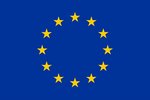Work packages
WP 1
Scientific and administrative coordination and quality control. WP1 aims to assure project coordination and to respect the timetable of the project by managing and monitoring the scientific activities. This WP also aims to avoid deviations from the planned activities and, should a deviation occur, to guarantee an adaptation of the work plan. A project workshop is organized to initiate the project and to secure the coordination of plans, activities and samples shared among work packages. Every year, a workshop is held at one of the project locations to plan future work and to share the outputs of the conducted research activities among all partners. Moreover, a Steering Committee (SC), whose members are responsible for the work packages, is established. The Steering Committee represents the decision body of the project and meets during the annual workshops and via conference calls at least twice a year. The coordinator guarantees the quality of the project deliverables before their submission and/or publication together with the Steering Committee. The project start is communicated through a press release soon after the official beginning of the activities. Furthermore, the coordinator ensures that the scientific and administrative deadlines for the midterm report as well as the final report of the project are respected. Project midterm and final reports are communicated through a press release. Moreover, the coordinator and the Steering Committee ensure the intellectual property management by evaluating the scientific publications related to the project.
WP 2
Resilient cropping systems. WP2 redesigns cropping systems at the five experimental sites included in the project. The activities are carried out in collaboration with partners managing the greenhouse/tunnel experiments and with local farmers to guarantee grower acceptance of innovative cropping systems. During the first project months, the details of the main cropping systems to be implemented at the different experimental sites are defined by AU-FOOD . In order to support the studies on soil health and functional biodiversity (WP4), tomato will be grown as a common crop at all experimental sites.
In strict synergy with the other WPs, WP2 contributes to the assessment of the sustainability and resilience of compared cropping systems and to the dissemination activities.
WP 3
Crop yield, nutrients availability and soil fertility assessment.
Work package 3 aims at assessing the impact of agricultural practices implemented in regular and innovative cropping systems on soil fertility and crop yield at all five experimental sites. A strict synergy with the activities carried out in work package 2 (Resilient cropping systems) and work package 4 (Soil health and functional biodiversity) is needed.
WP 4
Soil health and functional biodiversity. Work package 4 assesses soil health and functional biodiversity as a function of agricultural practices implemented in regular and innovative cropping systems at all five experimental sites. The activities carried out in strict synergy with work package 2 (Resilient cropping systems) and work package 3 (Nutrients availability and nitrate leaching).
WP 5
This work package deals with communication, actors’ involvement and sustainability assessment. The main aim of this part is to disseminate information and knowledge regarding innovative and more environmentally sustainable agricultural practices to actors through the use of tailor-made tools of communication and knowledge transfer. Different ways of communication, such as articles in journals, short video clips on YouTube and social media, are used to reach all the different actors. Vegetable growers will not be the only actor group addressed by the project., Also policy makers and consumers will be involved in project activities. As far as consumers are concerned, a special attention will be dedicated to Food Citizenship concept implementation.
Environmental sustainability assessment will be done by LCA’s on all five experiments within the project. The “business as usual” system will be compared with the most innovative system. In one key study, the economic impact will be studied using a full cost model.
